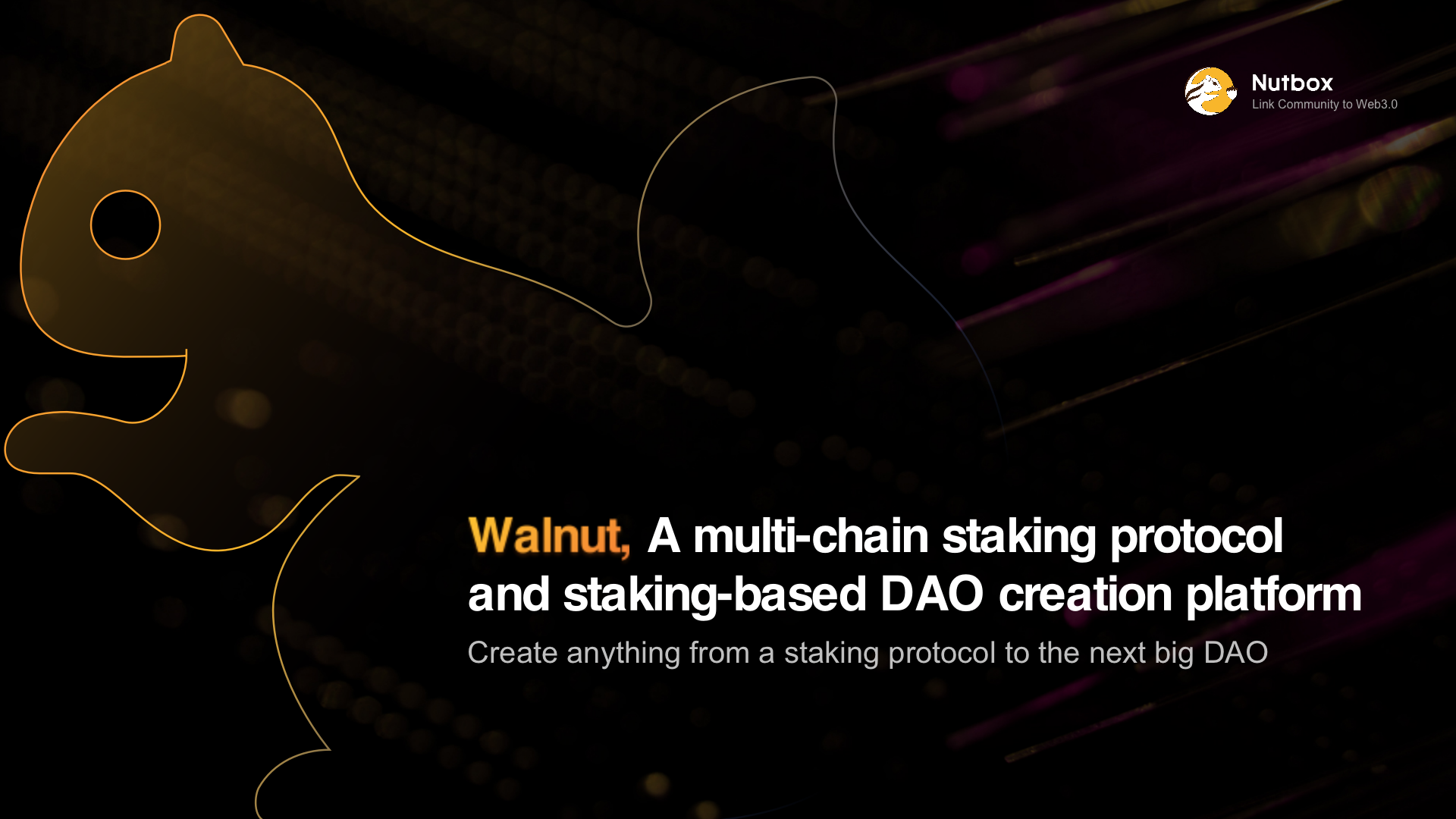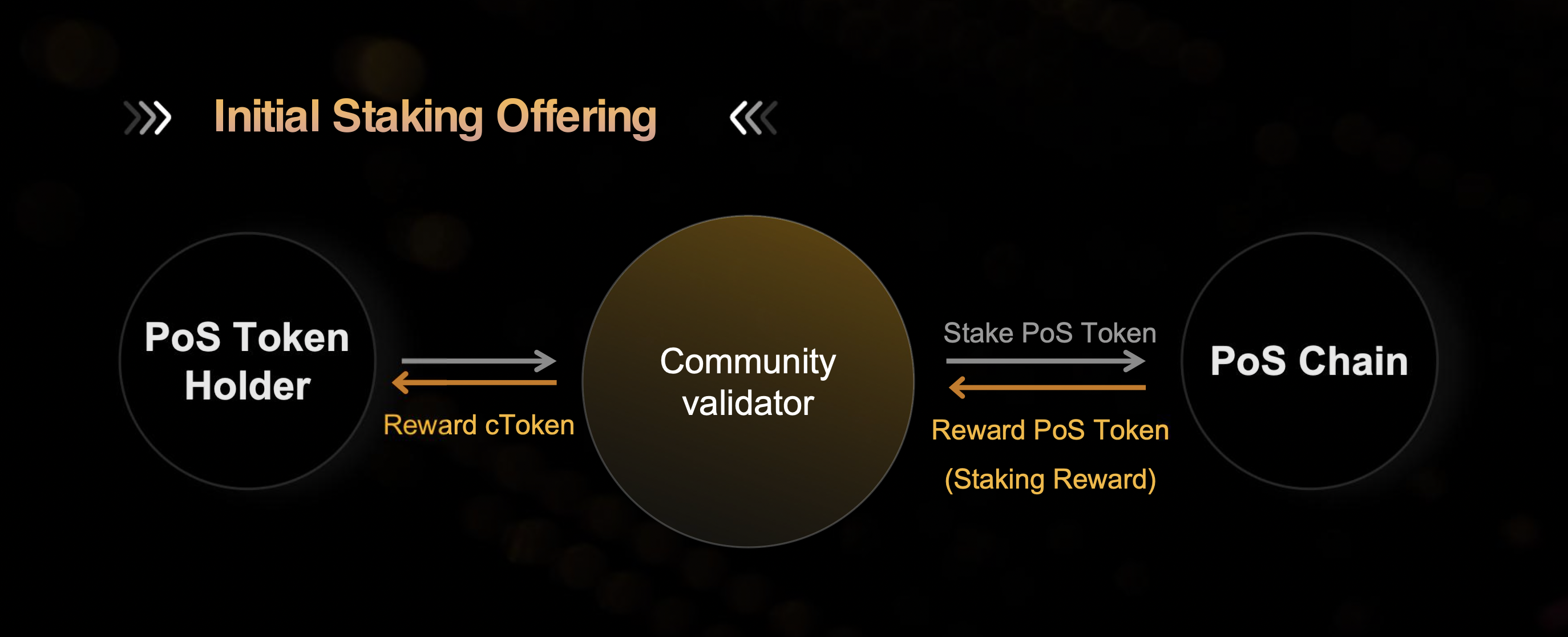
Whether in the world of distributed systems and digital assets or Mesopotamia thousands of years ago, human economic relationships have always been based on the same basic principles.
Fundamental Economic Principles of the Crypto World
In the Bitcoin network, miners obtain the authority to verify and determine transactions by locking (staking) mining machines and energy to obtain BTC rewards. Similarly, PoS verifiers need to lock the liquidity of local network assets in order to participate in the consensus process of the PoS network and obtain PoS token rewards. Like liquidity mining, tokens need to be stored in liquidity pools for specific transactions to receive compensation commensurate with their work.
Miners and energy, meanwhile, provided early support for bitcoin's value. The staking economy helps PoS networks and Defi protocols achieve an early cold start.
In this context, we created Initial Staking Offering (ISO for short) to help DAO achieve a cold start to the early network.
ISO: A Benign Bootstrap Way to Protect Community Members
ISO is a next-gen Bootstrap approach based on Staking Economy, similar to PoW, PoS, and Liquidity mining.
DAO founders can use Walnut to configure their ISOs so that community members can delegate PoS tokens to the validators of the DAO community. Community members can obtain community tokens by block, and the community can receive some PoS tokens as staking rewards (Staking Reward).

This method allows community members to support the development of the community on the premise of holding mainstream PoS tokens, and the community can also obtain a certain amount of PoS tokens to promote the development of DAOs. This is a good way to Bootstrap under the negative feedback loop where the risk of users participating in new projects is extremely high and most DAOs cannot obtain sufficient financial support.
In particular, DAO is in its infancy, and the future of each DAO is facing great uncertainty. Under the traditional DAO financing method, this will be directly transmitted to community members through ICO and other forms, leaving community members torn between high FOMO sentiment and desperation for capital loss. This also limits the audience for which the DAO is targeted, and the larger risk-averse and ordinary users cannot contribute much to DAO Bootstrap.
Walnut's motto from its inception was "The DAO is for Everyone." Everyone should be able to create and launch a DAO in minutes at near "zero" cost, which first and foremost requires a Bootstrap way of protecting community members, a benign DAO.ISO is such a Bootstrap method. It is rooted in a staking economy of hundreds of billions of dollars. It can bring as much as tens of billions of dollars to DAO every year, which will enable DAO to spread to every corner of the world.
Create your staking economy in minutes
Under the traditional paradigm, if the community needs to create staking modules such as liquidity or staking pools, it can either develop it by itself or obtain the support of Sushiwap et al. by voting on the Sushiswap proposal. This leaves the community facing additional development costs, high audit fees, and pressure to promote on its own.
Within minutes, Walnut allows communities to configure its modules such as liquidity mining and staking pools with a click, with no code, no audit, and no additional cost. The community creates its staking module at a cost close to "0", with more funds and time to focus on the development of its unique application scenarios.

Create More on Top of the Staking Economy
In the PoS network, the staker who staking the local token has the right to choose a valid validator. In the STEEM blockchain, STEEM stakeholders can also decide how the newly generated STEEM is distributed to creators and curators. In the Cult DAO, the stakers of CULT can decide on the community fund to invest in and obtain more CULT.
As the most effective equity and authority reference indicator in the current encryption world, staking can also be integrated into more scenarios. Walnut allows the community to deploy staking-based rights or permissions with one click, creating DAOs on the basis of the staking economy. Specifically, the participants of the liquidity mining and staking pool have the voting rights of the proposal system, the right to like the content of the community, the right to distribute the community fund, and so on.
With Walnut, you, your fellows, and the community can easily create and operate investment DAOs, staking DAOs (PoS mining pool DAOs), and many more types of DAOs using blockchain technology.